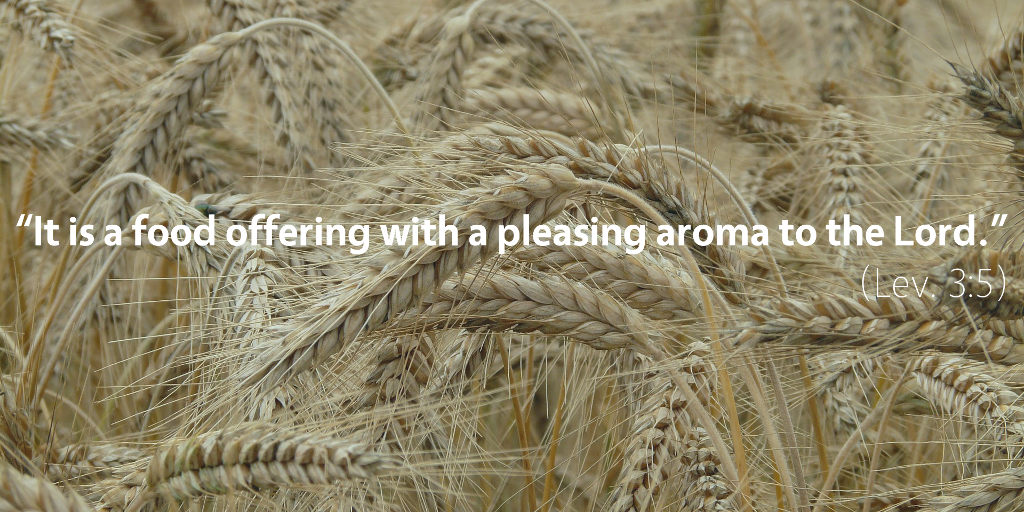Bible Readings for March 31st
Leviticus 2–3 | John 21 | Proverbs 18 | Colossians 1
The grain offering (Lev. 2) and the peace offering (Lev. 3) were sacrifices of praise, not atonement. They were made to remember and celebrate something that Yahweh had done for the worshiper.
So, the grain offering was often made as a way to honor Yahweh with the firstfruits of a harvest (Lev. 2:14–16)—God’s regular, ongoing provision in the life of his people. The “memorial portion” (Lev. 2:2, 9, 16) was burned up on the altar to remember God’s faithfulness in the harvest, and Yahweh gave the rest of the offering to the priests for food.1
The peace offering, on the other hand, was a feast in which all God’s people participated. A worshiper would bring a peace offering and tell the whole congregation what God had done for him. Then, all God’s people would eat in fellowship with one another in the presence of God to celebrate the peace that God had made with and for his people. The peace offering was the holy meal eaten by the elders in the presence of God in Exodus 24:9–11, and it foreshadows our meal with God during the Lord’s Supper.2
But the first sacrifice named in Leviticus—the burnt offering (Lev. 1)—was perhaps the most important in Israel’s worship. This was the primary sacrifice that Israel offered to make atonement for their sins, and it was the atoning sacrifice offered when Yahweh renewed his covenant with Israel on Mount Sinai (Ex. 24:5). Worshipers would lay their hands on the head of the offering they were bringing, ceremonially transferring their own sins onto the animal, and then the animal would be wholly burnt up as a sign that the worshipers were completely surrendered to God and that God had completely accepted the worshipers.3
Charles Spurgeon captures the essence of the burnt offering well:
When a man brought his bullock, or his goat, or his lamb, he put his hand on it and as he knew that the poor creature must die, he thus acknowledged that he, himself, deserved death. The victim fell in the dust, struggling, bleeding, dying. The offerer confessed that…death from the Almighty hand was due to him. And oh, when a man comes to that…when he confesses that he cannot deliver himself, but has so sinned as to deserve to be cursed of God and judged to feel the horrors of the second death, then is he brought into a condition in which the great Sacrifice will be precious to him! Then will he lean hard upon Christ and, with broken heart, acknowledge that the chastisement which fell upon Jesus was such as he deserved and he will be amazed that he has not been called upon to bear it!4
Today, acknowledge your deep guilt before God, lean hard upon Christ, and praise him for his goodness in giving you life through his Son.
1 Allen P. Ross, Recalling the Hope of Glory: Biblical Worship from the Garden to the New Creation (Grand Rapids, MI: Kregel, 2006), 201–2.
2 Ibid., 271–75.
3 Ibid., 201.
4 Charles Spurgeon, “Putting the Hand upon the Head of the Sacrifice (Lev. 1:4, 5),” in The Complete Spurgeon Sermons on Leviticus, ed. Jacob D. Gerber.
Podcast: Play in new window | Download (5.0MB) | Embed
Subscribe: Apple Podcasts | RSS | More

Scripture quotations are from The Holy Bible, English Standard Version copyright © 2001 by Crossway Bibles, a division of Good News Publishers. Used by permission. All rights reserved.


